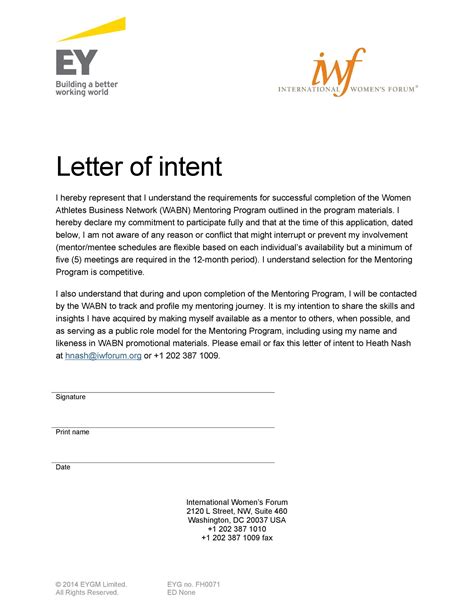The short answer is: it depends. Letters of intent (LOIs) can be helpful in certain situations, but they are not always necessary. They can help you secure funding, but they can also be a waste of time and effort. It is important to weigh the pros and cons before deciding whether or not to write an LOI.

What is a Letter of Intent?
An LOI is a non-binding agreement that outlines the basic terms of a proposed transaction. It is often used in the early stages of a negotiation to show that both parties are serious about moving forward. LOIs can be used for a variety of purposes, including:
- Securing funding
- Acquiring a company
- Entering into a joint venture
- Selling a business
Pros of Writing an LOI
There are several potential benefits to writing an LOI:
- It can help you secure funding. LOIs can be used to show potential investors that you are serious about your business and that you have a well-thought-out plan. This can make it more likely that they will invest in your company.
- It can help you acquire a company. LOIs can be used to outline the basic terms of an acquisition, such as the purchase price and the closing date. This can help to speed up the negotiation process and make it more likely that the deal will close successfully.
- It can help you enter into a joint venture. LOIs can be used to outline the basic terms of a joint venture, such as the roles and responsibilities of each party and the division of profits and losses. This can help to avoid misunderstandings and disputes down the road.
- It can help you sell a business. LOIs can be used to outline the basic terms of a sale, such as the purchase price and the closing date. This can help to attract potential buyers and make it more likely that you will get a good price for your business.
Cons of Writing an LOI
There are also some potential drawbacks to writing an LOI:
- It can be a waste of time and effort. If the negotiation does not go through, the LOI will have been a waste of time and effort.
- It can give the other party too much information. An LOI can give the other party a lot of information about your business and your plans. This information could be used against you in the negotiation.
- It can create a false sense of security. An LOI is not a binding agreement. This means that the other party could still change their mind and walk away from the deal.
Should You Write an LOI?
The decision of whether or not to write an LOI is a complex one. There are a number of factors to consider, such as the purpose of the LOI, the other party involved, and the stage of the negotiation.
If you are considering writing an LOI, it is important to weigh the pros and cons carefully. You should also consult with an attorney to make sure that the LOI is drafted in a way that protects your interests.
Common Mistakes to Avoid
There are a number of common mistakes to avoid when writing an LOI:
- Do not include too much information. An LOI should be concise and to the point. It should only include the essential terms of the transaction.
- Do not make any binding commitments. An LOI is not a binding agreement. This means that you should not make any binding commitments in the LOI.
- Do not sign an LOI unless you are fully informed. Before you sign an LOI, you should make sure that you fully understand the terms of the agreement. You should also consult with an attorney to make sure that the LOI is drafted in a way that protects your interests.
Conclusion
LOIs can be helpful in certain situations, but they are not always necessary. It is important to weigh the pros and cons before deciding whether or not to write an LOI. If you do decide to write an LOI, it is important to avoid the common mistakes listed above.
